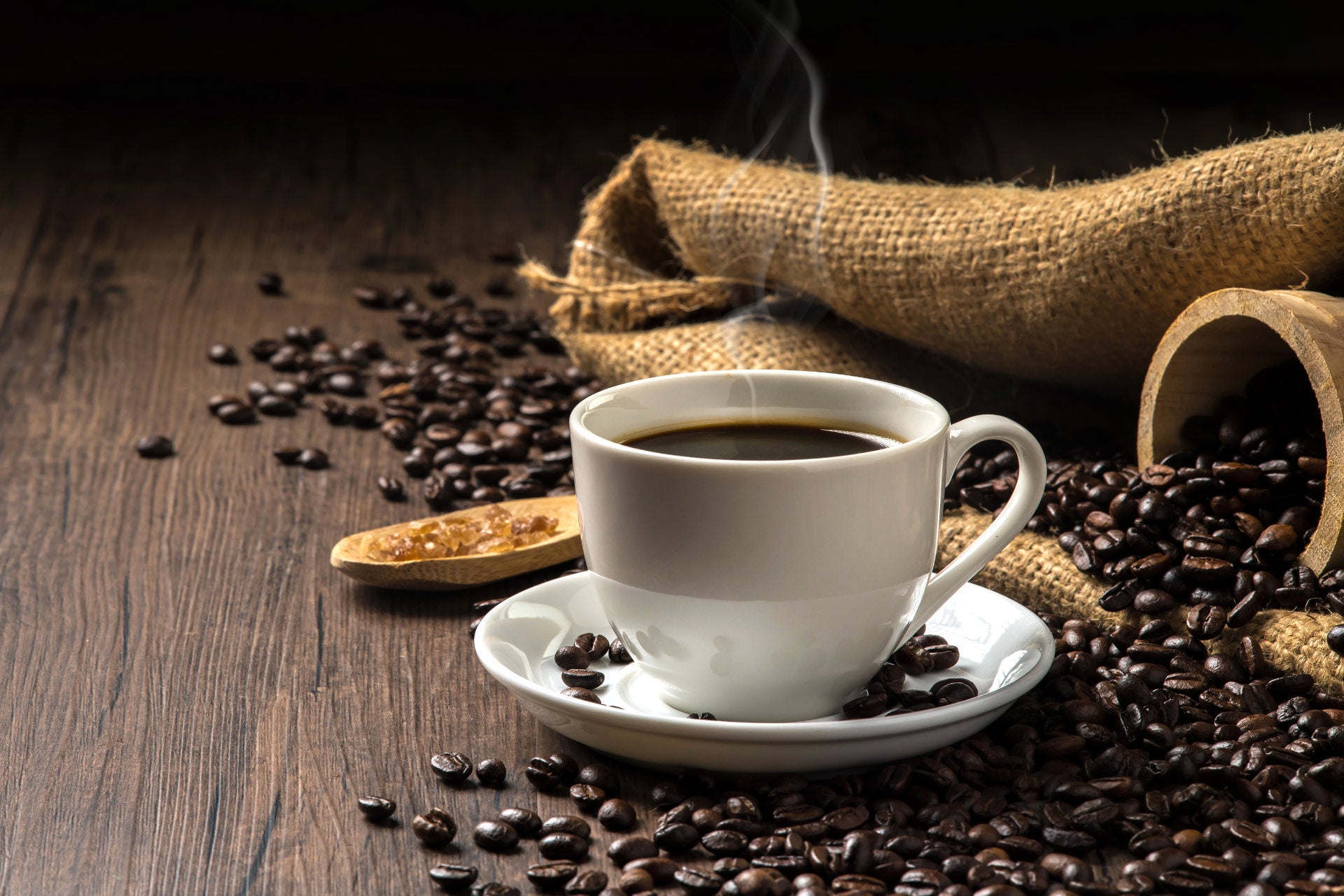
Monster Energy Caffeine vs. Coffee: A Head-to-Head Comparison for the Modern Consumer
In the ever-accelerating pace of modern life, the need for a quick energy boost has become almost ubiquitous. Two primary contenders have emerged as go-to choices for combating fatigue and enhancing focus: Monster Energy drinks and a classic cup of coffee. Both offer a jolt of caffeine, but their composition, effects, and potential drawbacks differ significantly. This article provides a comprehensive comparison of Monster Energy caffeine vs. coffee, exploring their nuances to help you make an informed decision about which beverage best suits your needs.
The Caffeine Conundrum: Understanding the Basics
Caffeine, a naturally occurring stimulant, is the active ingredient driving the energy-boosting effects of both Monster Energy and coffee. It works by blocking adenosine, a neurotransmitter that promotes relaxation and sleepiness. By inhibiting adenosine, caffeine increases alertness and reduces perceived fatigue. However, the concentration and delivery of caffeine vary considerably between the two beverages.
Monster Energy: A Deep Dive
Monster Energy drinks, a product of Monster Beverage Corporation, are marketed towards a younger demographic and are often associated with extreme sports and high-energy activities. These beverages are characterized by a high caffeine content, often exceeding the amount found in a standard cup of coffee. In addition to caffeine, Monster Energy drinks typically contain a blend of ingredients, including sugar, taurine, guarana, B vitamins, and other additives. These ingredients are purported to enhance energy levels and improve focus, but their effects are often debated.
Caffeine Content in Monster Energy
The caffeine content in Monster Energy drinks varies depending on the specific product. A standard 16-ounce can of Monster Energy typically contains around 160 milligrams of caffeine. Some formulations, such as Monster Energy Rehab, may contain even higher amounts. This is significantly more than the average cup of coffee, making Monster Energy a potent source of caffeine.
Ingredients Beyond Caffeine
Beyond caffeine, Monster Energy drinks contain a cocktail of other ingredients. Taurine, an amino acid, is believed to play a role in muscle function and may enhance athletic performance. Guarana, another stimulant, provides an additional dose of caffeine. B vitamins are often included for their role in energy metabolism. However, the combination of these ingredients and their potential synergistic effects have been subject to scrutiny.
Potential Risks and Side Effects
The high caffeine content in Monster Energy drinks can lead to several potential side effects, including anxiety, insomnia, rapid heart rate, and digestive issues. The added sugar can contribute to weight gain and increase the risk of type 2 diabetes. Furthermore, the combination of caffeine and other stimulants in Monster Energy may exacerbate these risks. It’s crucial to consume these beverages in moderation and be mindful of your individual tolerance to caffeine.
Coffee: The Timeless Classic
Coffee, a beverage brewed from roasted coffee beans, has been a staple of daily life for centuries. It’s a global phenomenon, enjoyed in countless variations, from simple black coffee to elaborate lattes and cappuccinos. Coffee’s popularity lies not only in its ability to provide an energy boost but also in its rich flavor profiles and the social ritual associated with its consumption.
Caffeine Content in Coffee
The caffeine content in coffee varies depending on factors such as the type of coffee bean, the brewing method, and the serving size. A standard 8-ounce cup of brewed coffee typically contains around 95 milligrams of caffeine. Espresso, a more concentrated form of coffee, has a higher caffeine content per serving. The caffeine in coffee provides a more sustained and gradual energy boost compared to the often-intense surge from Monster Energy drinks.
Beyond Caffeine: The Antioxidant Power of Coffee
Coffee is rich in antioxidants, such as chlorogenic acid and melanoidins, which offer potential health benefits. These antioxidants can help protect against cellular damage and reduce the risk of chronic diseases. Coffee also contains other compounds that may contribute to improved cognitive function and mood.
Potential Risks and Considerations
While coffee offers several potential benefits, it also has potential drawbacks. Excessive coffee consumption can lead to anxiety, insomnia, and digestive issues. Coffee can also increase blood pressure in some individuals. Additionally, coffee can stain teeth and may cause withdrawal symptoms, such as headaches, if consumption is abruptly stopped. It’s important to listen to your body and moderate your coffee intake.
Monster Energy Caffeine vs. Coffee: A Comparative Analysis
When comparing Monster Energy caffeine vs. coffee, several key factors come into play:
- Caffeine Content: Monster Energy typically has a higher caffeine content per serving compared to coffee, leading to a more intense and immediate energy boost. Coffee offers a more moderate and sustained caffeine release.
- Ingredients: Monster Energy contains a wider range of ingredients, including sugar, taurine, and guarana, which may contribute to additional effects but also increase potential risks. Coffee primarily contains caffeine and antioxidants.
- Effects: Monster Energy can provide a rapid surge of energy and focus, but it may also lead to jitters, anxiety, and other side effects. Coffee provides a more balanced and sustained energy boost, with a lower risk of adverse effects.
- Health Considerations: Both beverages have potential health implications. Monster Energy’s high caffeine and sugar content can pose risks, while coffee’s high consumption can lead to anxiety or digestive issues.
Which is Right for You? Making the Informed Choice
The choice between Monster Energy caffeine vs. coffee depends on your individual needs, preferences, and tolerance to caffeine. Consider the following factors:
- Your Caffeine Sensitivity: If you are sensitive to caffeine, coffee may be a better option due to its lower caffeine content and more gradual release.
- Your Energy Needs: If you need a rapid and intense energy boost, Monster Energy may be a viable option, but be mindful of the potential side effects.
- Your Health Goals: If you are concerned about your sugar intake or are prone to anxiety, coffee may be the healthier choice.
- Your Lifestyle: Consider your daily routine and how each beverage fits into it. Coffee is often associated with social settings, while Monster Energy is often linked to more active or extreme pursuits.
Ultimately, moderation is key. Whether you choose Monster Energy caffeine vs. coffee, pay attention to how your body responds and adjust your consumption accordingly. Consulting with a healthcare professional can also help you determine the best choice for your individual health needs.
Beyond the Basics: Further Considerations
The debate between Monster Energy caffeine vs. coffee extends beyond just caffeine content and ingredients. Consider these additional factors:
Hydration
Both coffee and Monster Energy can act as diuretics, potentially leading to dehydration. Be sure to drink plenty of water throughout the day, especially if you consume either beverage regularly. [See also: Hydration and Caffeine: A Guide]
Long-Term Effects
The long-term effects of consuming large amounts of either beverage are still being studied. Moderate consumption of coffee has been linked to some health benefits, while the long-term effects of consistently consuming Monster Energy drinks are less clear. [See also: Coffee and Longevity: What the Research Says]
Alternatives
If you’re looking for a less caffeinated alternative, consider green tea or yerba mate. For a caffeine-free energy boost, try exercise, a healthy diet, and adequate sleep. [See also: Natural Energy Boosters: Beyond Caffeine]
Conclusion: Making an Informed Choice in the Caffeine Landscape
The comparison of Monster Energy caffeine vs. coffee reveals two distinct approaches to energy enhancement. Coffee, a time-tested beverage, provides a moderate and sustained caffeine boost with potential health benefits. Monster Energy drinks offer a more intense and rapid energy surge, but with potential risks associated with their high caffeine content and added ingredients. The best choice depends on your individual needs, preferences, and health considerations. By understanding the nuances of each beverage, you can make an informed decision and fuel your day responsibly.
The key takeaway is to listen to your body, consume both beverages in moderation, and prioritize overall health and well-being. Whether you’re reaching for a coffee or a Monster Energy, make sure it aligns with your lifestyle and helps you achieve your goals safely and effectively.


